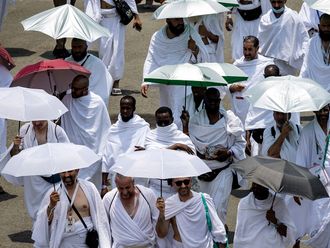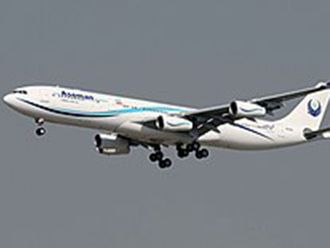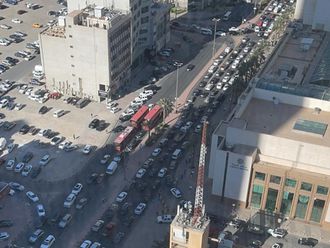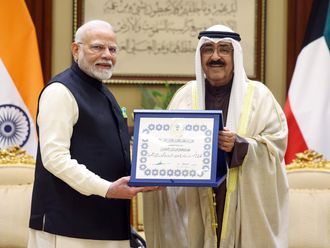Khartoum, Sudan: The worst week of violent unrest that central Sudan has seen in years has resulted in the arrests of 700 people, the government said on Monday, along with many deaths and an unprecedented crackdown on the news media.
The trigger for the latest protest was the lifting of gasoline subsidies by the government of President Omar Hassan Al Bashir. It was the latest difficult economic adjustment the Sudanese have experienced since South Sudan became independent two years ago, taking with it nearly 75 per cent of the oil revenue the two countries once shared. Inflation has reached nearly 40 per cent, and the value of the Sudanese pound has spiralled downward.
The police on Monday once again used tear gas on protesters, this time, witnesses said, female students at Ahfad University in Omdurman who were chanting, “We don’t want Bashir.”
The police said 33 people have died during the protests, while various activists and opposition leaders placed the toll at more than 100. At a government news conference, Interior Minister Ebrahim Mahmoud Hamad dismissed photographs of shooting victims circulating on the Internet as fakes, saying, “Most pictures on social media are actually from Egypt.”
Hamad also said the police had not used live ammunition against protesters who, he said, had attacked more than 40 gas stations, 13 buses and several government buildings, adding that there were indications that rebels from Sudan’s border areas were involved in the violence.
The authorities have accused some foreign and local media of stirring dissent against the government, and there were several heated moments on Monday, when a local journalist asked officials at the news conference, “Why do you keep lying?”
Sudan ranks among the worst in press freedoms, according to Reporters Without Borders’ 2013 World Press Freedom Index, and events of the last week added to that reputation and presented new challenges to journalists covering the protests and the government’s reaction.
“The government wanted a total blackout on events in Sudan by local and international media,” a columnist, Faisal Mohammad Saleh, said.
Mahgoub Mohammad Saleh, 85, editor in chief of the daily newspaper Al Ayam, said: “The security services insisted that all publications of news and commentary on the current crisis should only follow government statements. Publishers faced the choice of either failing miserably to meet media ethics or face financial loss after having their newspapers confiscated.”
At least five newspapers were confiscated or suspended publication for several days.
“We did not follow their directions literally,” said Al Sudani’s editor, Diaa Bilal. “The paper criticised the lifting of subsidies.” The newspaper was confiscated on one day and suspended publication for two.
At least three other newspapers, including Al Ayam and Al Qarar, decided not to publish. “We cannot write what the government wants and neglect what’s happening on the street,” said Al Qarar’s political editor, Luay Abdul Rahman, 35.
Sudan’s minister of information, Ahmad Bilal, said the Sudanese government had “no problem with opposing views, but that it had placed “red lines” on local newspapers because “we will not accept incitement that may provoke chaos and hurt the social fabric.”
The restrictions on newspapers pushed the Sudanese Journalists Network, a loose, independent network that says it represents hundreds of journalists, to call last Saturday for a strike. Some journalists appear to have heeded the call, but it is difficult to know how many or their impact.
Pan-Arab satellite television networks covering the protests have also been subject to the government’s ire. The operations of both Al Arabiya, which is owned by the Saudis, and Sky News Arabia, an offshoot of Sky News in Britain, were suspended indefinitely last Saturday.
“We were told by security that our office was closed until further notice,” said Aziz Ebrahim, 39, Al Arabiya’s senior producer in Khartoum. “They held our equipment, took our press cards and said not to come back to the office in the morning.”
Ahmad Bilal, the information minister, faulted the satellite networks’ coverage of events as “trying to manufacture an Arab Spring in Sudan.”
“We think generally that the international media’s coverage brought both sides of the story,” he said. “But Al Arabiya and Sky News Arabia went beyond their mandate.”
Saleh, who has been editor of his newspaper for 60 years, said censorship made no sense. “A news blackout gives a chance for rumours to spread,” he said. “If media was free in the last seven days, things would have not developed to this stage.”












